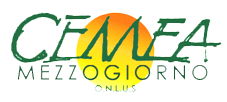Language Version |
About LLP - GRUNDTVIG LEARNING PARTNERSHIP
![]() The Grundtvig Learning Partnership – Lifelong Learning Programme – is a framework for small-scale co-operation activities between organizations working in the field of adult education. The partnerships aim to include European cooperation in the organization of educational activities. In a Grundtvig Learning Partnership trainers and learners from at least 3 participating countries work together on one or more topics of common interest, exchanging experiences, practices and methods. In Grundtvig Learning Partnerships focusing on learner participation, learners should be actively involved in the project and their mobility should be encouraged as much as possible.
The Grundtvig Learning Partnership – Lifelong Learning Programme – is a framework for small-scale co-operation activities between organizations working in the field of adult education. The partnerships aim to include European cooperation in the organization of educational activities. In a Grundtvig Learning Partnership trainers and learners from at least 3 participating countries work together on one or more topics of common interest, exchanging experiences, practices and methods. In Grundtvig Learning Partnerships focusing on learner participation, learners should be actively involved in the project and their mobility should be encouraged as much as possible.
The supported activities are:
- partner meetings and seminars,
- exchanges of staff and adult learners involved in project activities,
- exchanges of experience and best practices,
- organization of exhibitions,
- production and dissemination of information material/documentation on the co-operation activities,
- dissemination of project experience and outcomes.
The project… Ed.HO.C. – Educational Holiday Centre

ED.HO.C. – Educational Holiday Centre (No. 2012-1-IT2-GRU06-37736-1) – is a project supported by the Grundtvig Learning Partnership framework and wants to develop adult’s grow and learning, targeting to people working as educators, coordinators or trainers involved in the educational holiday centre design, as well as parents who decide to make their children to experience an educational holiday centre. The educative dimension inside holiday centres is the main topic around which the exchange and the discussion between the organizations involved, all working on this field, will be concentrated on. The experience of educational holiday centre is not influenced by the didactic dimension, like in schools, and no performance objectives, like in sportive activities; although, the adults who provide the service have to invest on their preparation and training on different fields -like expression, creativity, play and games dimension- functional elements to create a high quality educative holiday centres. On the other hand, parents, as “first educative agency” in their children’s grow, need to have the tools and the opportunity to recognize and to choose a holiday centre where the educative dimension is effectively present and valorized. This project wants to create a large community, composed by educators, trainers and parents from Italy, Portugal, Spain, Slovakia and Romania, which has the common interest of exchanging and valorizing, through mobilities and local experimentation, their experiences and best practices upon Educational Holiday Centre for children aged 5-10, managed by associations who don’t receive any public funding or only partially co-funding, as well as to acquire new skills and competences in order to define a common framework of values and practices able to identify the essential characteristics that an Educative Holiday Centre must have to be distinguished by occasional leisure centres with no professionalized employees and no educative dimension. ED.HO.C. project will be concentrated on strategic areas of research and debate summed up as follows:
COMPETENCES – Professionals must have the capacity to live in group and to define working strategies to organize individual and common work. They are educative operators having specific competences in education and training’s field, with a particular attention to disadvantage background individuals. They take care about psych-pedagogical interventions towards children, realized through educative projects in different contexts. Specialistic competences are so needed (psychological, pedagogical,methodological and didactic).
ACTION – Working in a holiday centre, with a strong educational dimension, means to be a technician with a preparation not only at theoretical level but also at practical one. The activities must be recreational-educative projects where games and the collective life dimension are used as tools of strong educative impact to answer children’s needs and to support them to grow up. To fulfill this role, the operator must go further than to “make children having fun” giving them smothering to do and try to understand them deeply through the constant direct contact and a systematic study on playing activities.
STRUCTURE – The project wants to reflect, compare and contrast different elements concerning the structure where the holiday centre is placed that are functional to the educative dimension. This part will be particularly analyzed during the mobilities.
VALORIZATION – The final aim of the project strategy is to elaborate a Quality Chart, which define the educative dimension provided in a holiday centre for children, in private realities. The idea is to give value to high quality educative services thanks to a better preparation of people employed and to give parents and externals a tool to read this particular dimension.
The project’s coordinator… Cemea del Lazio

The ED.HO.C coordinator is CEMEA del Lazio. The CEMEA – Training Centres for Active Education Methods – were born in France in 1936 with the aim of developing democratic and participate behaviours. After the war CEMEA spread all over the world. Today the CEMEA movement is active in 29 European, African and American countries, co-ordinated by the International Federation with its headquarters in Paris, which since 1964 has the B status at the UNESCO and since 1972 a consultative status at the Council of Europe and at the European Youth Forum in Brussels. In Italy, the CEMEA movement was born in 1950 and gathered in the Italian Federation of CEMEA in 1974. CEMEA refers to active education: a kind of education that tends to free the human being, offering situations in which anyone – child, youngster, adult – can become conscious of the world around him, contributing to its evolution, in a perspective of individual and social development. The CEMEA movement is characterised by: lay, independent, non confessional social commitment; international experience; «active education» methodology; open discussion around ideas and experiences.
The CEMEA promote an educative approach based on several guiding principles which determinate its action:
- Every human being can develop and improve himself during his lifelong. He has the aspiration and the possibility
- There is just one education: addressed to all and in every moment
- The educational action is done in direct and constant contact with the reality
- Every human being had the right to have our respect and consideration, without any kind of distinction concerning age, origin, social class, sex…
- The context has a fundamental importance on the development of a person
CEMEA del Lazio is placed in Rome and its main activities are:
- training stages for educators, teachers, animators;
- artistic and cultural activities within social programs;
- holidays educational centres for children;
- workshops outside compulsory education;
- publishing activities (bulletins, books, reviews…)
The partners…
All the ED.HO.C partners work with children in playgrounds, kids centres and similar, with a special expertise in educational holiday centres for children, not public founded or co-founded.
The project involved the following international partners:
- Associação Juvenil de Peniche, from PORTUGAL, was founded in 1990. It organizes projects in the social, cultural and international areas. The association is very linked with the local community and represent a very educative focal point for the village. In its initiatives AJP involves children, teenagers, parents and teachers through play and recreational activities, which are main tools of its work.
- Keric, from SLOVAKIA, is a is a non-profit youth organisation working mainly with young people aged 12 – 25 but also with adults. KERIC was founded in February 2003; its offers a variety of activities which differ according to the age and needs of individuals and groups.
- Telecentro de Ayerbe, from SPAIN, contains all kind of programs in relation with youth and children in a small rural area. Some of their tasks are to manage the YIA program, developing youth policies (prevention programs,) improving the offer in relation with leisure activities, managing the youth information office and they also try to attend the youngsters demands
- Chance for Life, from ROMANIA, is a charity aiming to develop Romanian communities by empowering children and young people. By providing training for adults and challenging their conventional way of thinking, through social campaigns and educational, emotional and social support for children and youth, Chance for Life aims to shape the civic spirit and contribute to the sustainable development of Romanian communities.
The ED.HO.C. phases…
The project structure design to answer the identified needs will be composed by:
- Preparation phase in each country, August-November 2012
- Kick-off Meeting for decision makers of each organization involved, ITALY November 27th – 30th, 2012
- Training Course open to one coordinator and one educator from each partner organization, February 27th – March 4th, 2013
- Educators and parents in mobility from each country to visit the other partner organizations during their activities, exchange experiences, learn new methods and acquire new working competences in an educational holiday centre;
> Study Visit 1: ROMANIA May 8th – 11th, 2013 – focus on STRUCTURE
> Study Visit 2: PORTUGAL July 24th – 27th, 2013 – focus on ACTION
> Study Visit 3: SLOVAKIA August 19th – 22nd, 2013 – focus on COMPETENCIES
> Study Visit 4: SPAIN December 12th – 15th, 2013 – focus on VALORISATION
- Mid-Term Evaluation Meeting to draw the best practices learnt and new European framework on professional quality standards in qualified educational holiday centre, PORTUGAL February 07th – 10th, 2014
- Experimentation phase in each country February – June 2014
- Final Evaluation and Public Event to disseminate the outcomes, ITALY 27th – 30th June 2014
- Dissemination phase in each country, July – August 2014
The final aim…
The final aim of the project is to elaborate a Quality Chart, that will identify the educational holiday centres which can really be called “educational”, by fixing and communicating to the external the basic elements needed to recognize a high quality This document will be a common inspiration for all European educators, coordinators and trainers, on one hand, and a referring point for parents who want to make an informed and aware choice on their children educative free time opportunities, on the other hand. The idea is to give value to high quality educative services thanks to a better preparation of people employed and to give parents and externals a tool to read this particular dimension.














[...] The training course, developed following the active methodology proposed by Cemea’s movement, will explore all the elements necessary for the preparation of any professional involved in Educational Holiday Center residential activity, opening the first methodological comparison and confrontation between ED.HO.C. partners. It will assure a common language and a common reference framework for the partners, for the preparation and the training of professional profiles like educator, coordinator and trainer in the field of children education and in particularly inside an educational holiday centre.This common framework is absolutely needed to be able, during the mobilities, to further develop the research on the base of the themes associated to each of the planned study visits. You can find the calendar of the mobilities and more information about the study visits’ themes to the following link: https://www.cemea.eu/edhoc-educational-holiday-centre-en/ [...]
[...] You can find the calendar of the mobilities and more information about the study visits’ themes at the following link: https://www.cemea.eu/edhoc-educational-holiday-centre-en/ [...]
[...] You can find the calendar of the mobilities and more information about the study visits’ themes at the following link: https://www.cemea.eu/edhoc-educational-holiday-centre-en/ [...]
[...] You can find the calendar of the mobilities and more information about the study visits’ themes at the following link: https://www.cemea.eu/edhoc-educational-holiday-centre-en/ [...]
[...] Puteti afla mai multe despre proiectul ED.HO.C aici http://www.chanceforlife.ro/index.php?page=ed-ho-c&hl=en_US si aici https://www.cemea.eu/edhoc-educational-holiday-centre-en/ [...]
[...] You can find the calendar of the mobilities and more information about the study visits’ themes at the following link: https://www.cemea.eu/edhoc-educational-holiday-centre-en/ [...]